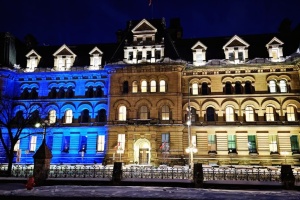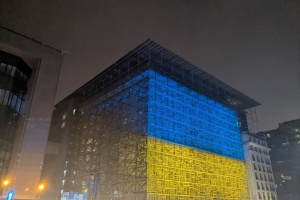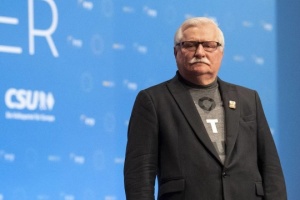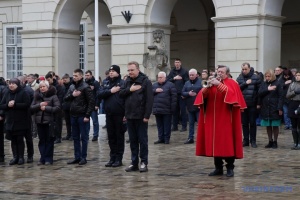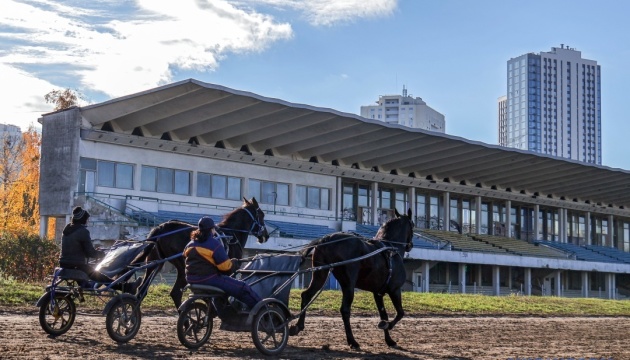
How modest Ukrainian horses got feed of famous trotters
It was like being in an old movie. First, the movie Hippodrome, which was filmed in the 70s by the Odesa Film Studio right here at the capital's Hippodrome on Teremky. It was a Soviet film that unusually and boldly opened up the world of hippodrome competitions, horses, riders, and the sweepstakes. I go up to the rostrum, look at the tracks on which the horses run with a rocking chair (a kind of wheelchair in which the rider sits), and then look out the windows of a large building, where there was a cash room where bets were placed... The hall, the "heart" of the sweepstakes, was closed, and during the war it was a terrorist defense headquarters. It is a typical Soviet building made of glass and concrete, and through the large windows you can see the stained glass windows on the opposite side.

I go back to the podium and listen to the story of Yevhen Driapachenko, a judge of the racetrack competitions:
- "These are the tracks for the horses to race with a carts. These are called trotting races. And there, a little further, are the competition fields for riders. So you don't get confused: those who sit in the carts are riders, those who sit on the horse are jockeys. In Soviet times, the hippodrome was a place for testing trotting horses, those that ride with a cart. There were four hundred horses in ten stables, they were horses from state stud farms, they competed, people played a sweepstakes, and the winning horses (stud farms, that is) received a part of the prize fund. In fact, the sweepstakes is a financial driver for the development of horse farms and racetracks. See that one cart over there? (Yevhen shows a frisky horse flying along the second "lane") That's one of the oldest riders, Spiridon Xenophontov. After the war started, he came to Kyiv from Kharkiv, where his house was badly damaged. Mr. Spiridon is 82 years old, and he still wins competitions! He is followed by master rider Lyudmyla Khloptseva, who became a rider as a certified animal technician and worked as a specialist at a racetrack, but her love for horses won out.
The horses are running in a sparing mode, the season is over. There are stables over there across the field. They often serve as hotels for horses and training centers. After all, there are private horses, police horses, and municipal horses. And the maintenance of private horses is part of the hippodrome's income.
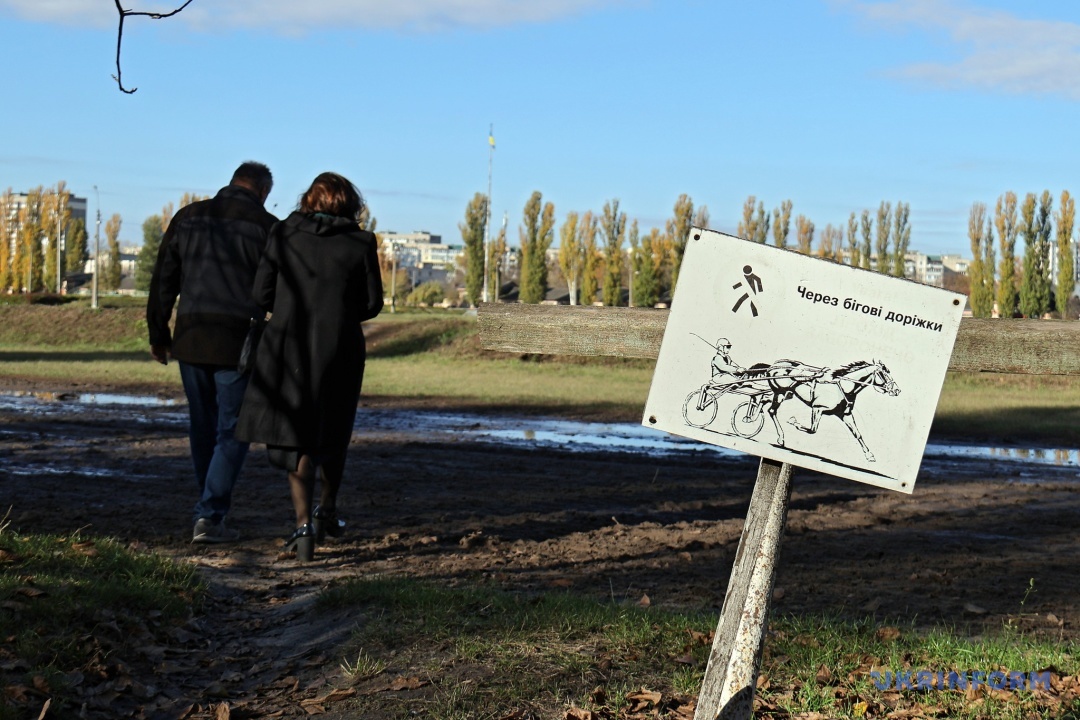
We descend from the grandstand and walk straight across the field to the stables. On the way, the staff and riders greet Mr. Yevhen. It is clear that the equestrian community is friendly with each other.
- "Do horses communicate with each other?" I ask the judge.
- "Yes," he smiles, "there was a winning horse in history called Ulov, and he won prizes only if his friend, a thoroughbred from a neighboring stable, was brought along. Horses and people, horses and animals, horses and cats - this communication is very romantic, described in literature many times.
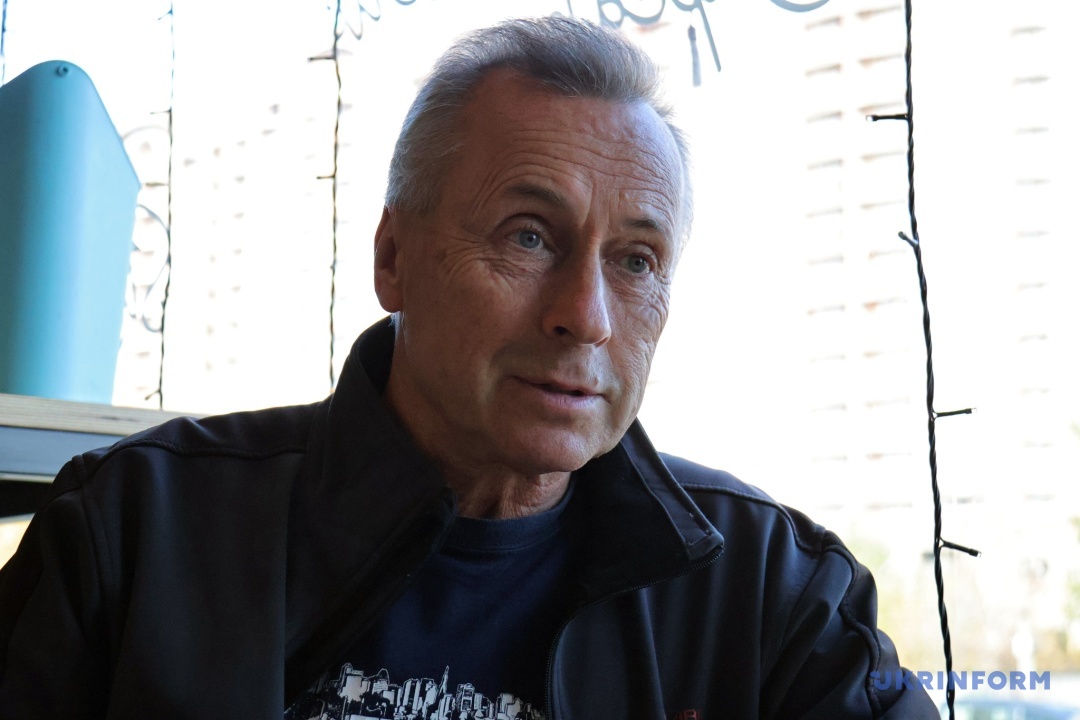
I arrive at the stables and a beautiful and athletic horsewoman appears, as if in the sequel to the movie Hippodrome.
- I am Olha Bondar, the deputy director of the hippodrome," she smiles.
"In the old movie, the woman, a stable worker, was just a romantic heroine, but here we have a whole deputy director of the hippodrome, not in a business suit and in an administrative building, but a horsewoman in a proper suit. A minute later, she opens the stall (the horse's "room" in the stable) and starts bandaging the horse's legs with a nice yellow elastic bandage. Why: The lower part of the horse's limbs is called the "dragonfly" (it's like an ankle), where the horse has a very thin bone, this place is most traumatic during a brisk trot, so this is how they prevent it.
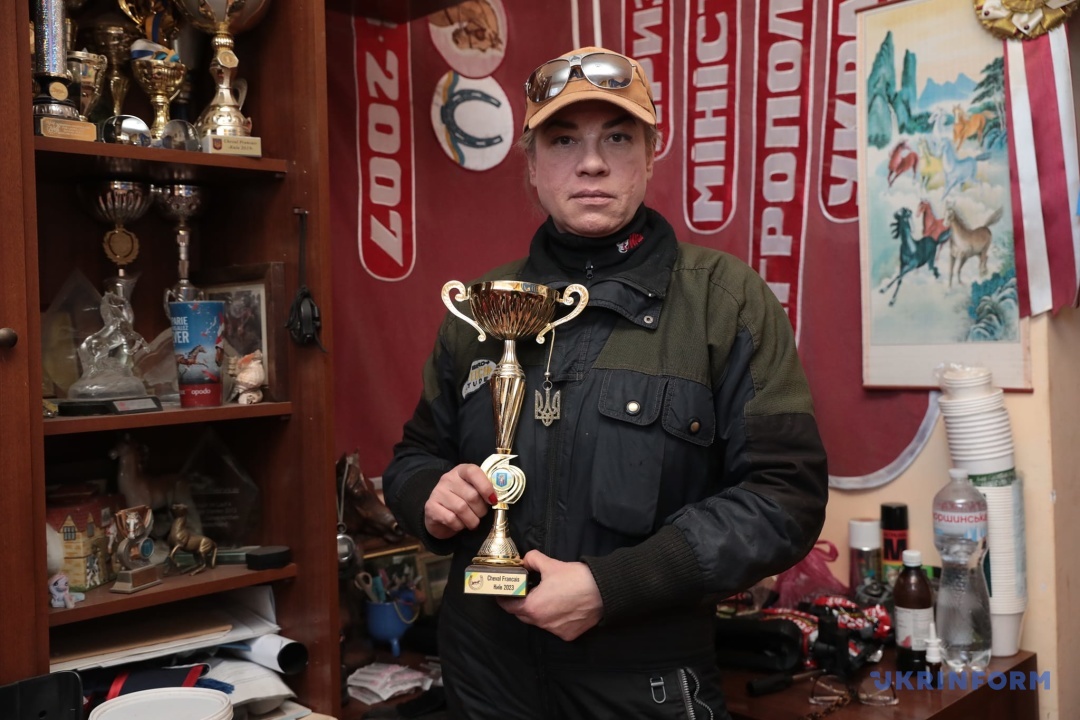
And then we go to her room right here at the stables. There are dozens of cups in the room, and Olha has won many Ukrainian and international competitions. A mathematician by training, she came to the stables 30 years ago to ride horses, recalling her childhood sporting hobby, and then began to ride as an athlete, then to work at the hippodrome, first as a trainer and then in the administration. Olha remembers both the decline of the Kyiv Hippodrome and its successes.
- In Soviet times, it was a stable enterprise with a well-established financing scheme. After the fall of the Soviet Union, there was no time for horses. There were few private horse owners. We also had our land in Bobrytsia "gnawed away" from us, where we had a subsidiary farm and where we harvested oats and hay for the horses' diet. But despite all the hardships, there were always people who loved horses and running. The stud farms also continued to exist, supplying us with horses for testing and running... It was not easy for the hippodrome, but we are glad that we are alive because we were looking for new ways to make money. For example, the number of trotting horses we kept decreased, and we had some free space in the stables, so we put horses from private owners who wanted to ride them. That is, the maintenance of private horses is a part of our income," says Olha.
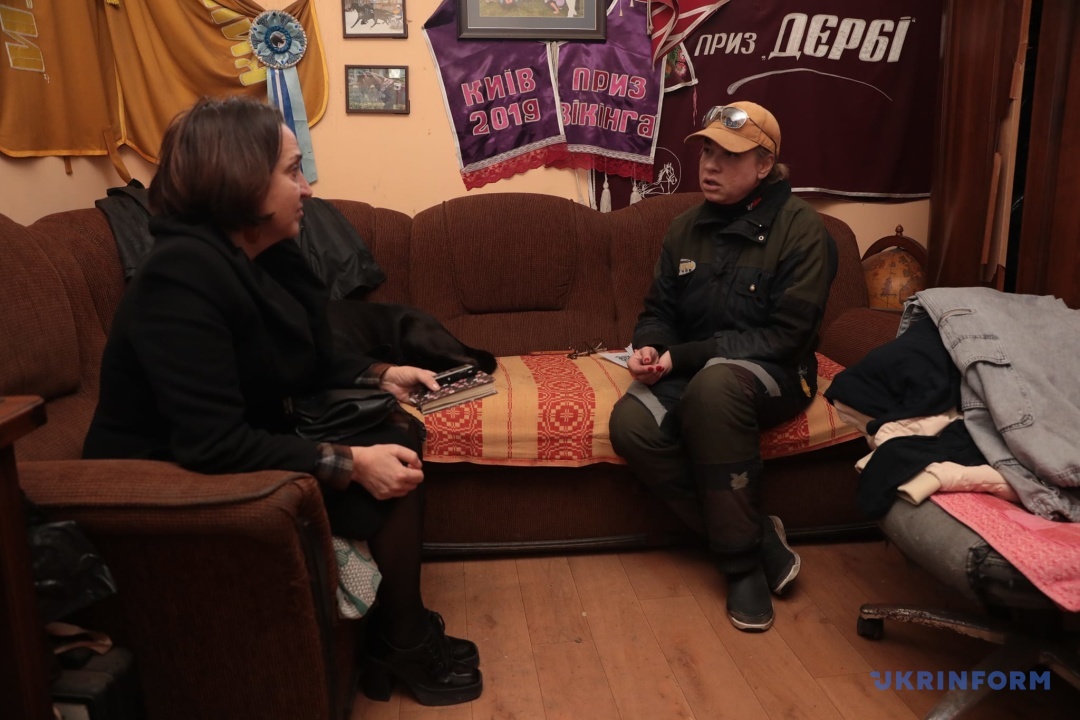
- Tell me," I suddenly remembered the movie Secretariat, about the most famous horse in the United States and in the world, "in the movie, that horse won all the world's competitions, not least because he loved his owner so much. She spoke to him just like that - trustingly. Does something like that sound familiar to you?
- "Yes," Olha smiles, "I have my horse Hromoboy here at the stable, he has been crowned three times, he won competitions at the age of two, three and at an older age. And the victories are the result of our work and... communication. He could be naughty during training, sometimes he wanted to dominate, threw me out of the rocking chair a couple of times and was scared himself. I built our "dialog" step by step, and when Hromoboy went to the competition, all the jokes ended, he went to victory. He also has the heart of a champion, and he knew that I knew it.
YANUKOVYCH'S STABLE: WHILE THE DIRECTOR WAS ACCUMULATING DEBTS, HORSES AND PEOPLE HAD TO WALK IN FORMATION
- "Okay, and if we get back to the hippodrome," I continue to ask.
- Since 2012, I have been in charge of the stables here. The stable is not only a place to keep horses, it is a kind of training center. Under Yanukovych, the director of the racetrack was a man who had previously run the Ukrainian penitentiary system. He was sent to the hippodrome to "sit down" and established very strict rules.
- Did the horses have to line up and walk in formation like in prison?
- People definitely had to be afraid and think about not taking an extra step. I was one of the centers of resistance to this attitude, and I headed the trade union. And suddenly the director offered me to head the hippodrome. It was unexpected, but I know this place, the horses, the people, the processes, the nuances. Later it turned out that I was given the opportunity to lead the company after accumulating debts. The UAH 800,000 of debt were incurred by my predecessors, I think, in order to sell the company for the debts. Every day I received court decisions. Everything was set up for the hippodrome to go bankrupt. However, I contacted the owners of the stud farms and asked them to deposit money into the account in advance. The hippodrome always works in conjunction with the stud farms. That's how we got it done. For a year and nine months, I was the manager of the hippodrome. In 2018, when a new director was appointed, we had no more debts... And I became the deputy director, and it suits me because I have more time for horses.
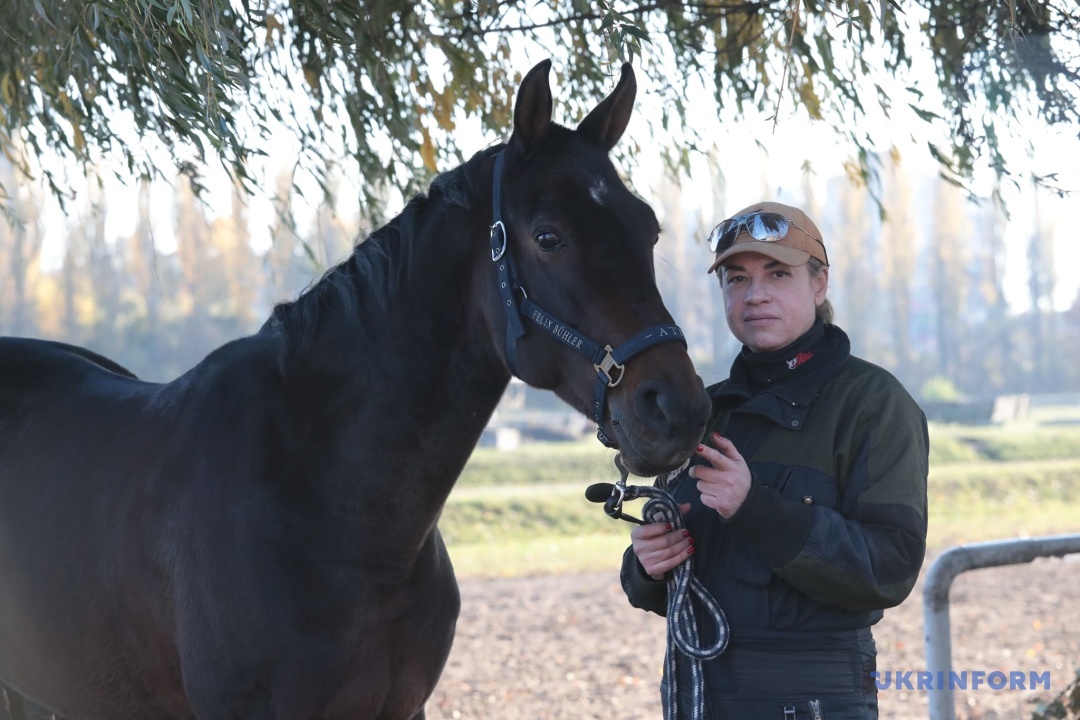
At some point, Olha leaves to talk to the horse owner, and I see a nice guy standing near the stall. He doesn't introduce himself and asks me not to take his picture because he is "playing hooky" at this time, because he has come to visit his horse. However, he does not refuse to talk.
- "I thought that horse owners were businessmen themselves, they don't have bosses," I tell the guy.
- But they don't. "Our neighbor, the owner, like me, is an IT guy, then there's a military man's horse, then a policeman's, then a guy who works in sales. A horse is not so expensive to buy, you just need to have eight to ten thousand UAH a month to keep it. And to get started, you see, we bought all sorts of things for horse hygiene. I gave this horse to my girlfriend," a visitor to the stable shares with us, "This horse was abandoned by its owners during the war. We came here to volunteer, to look after it, and we liked it so much that my girlfriend wanted to own it. We don't ride, but we want our horse to become an athlete. To put him in races.
WAR: IN KYIV, MOTHERS THREW THEMSELVES AT FOALS OUT OF FEAR, AND MANY BABIES DIED
Olha comes back and I ask her what happened here, how the Great War started.
- "It was one of the most difficult periods," Olha says, "there were 310 horses here, both private and state-owned. Many owners evacuated. Some of them disappeared for several months. Some of them took their horses back later. About two dozen people stayed with the rest of the horses. And you have to be near them around the clock. Everyone was scared. And we had to buy hay and oats somewhere. Usually, the owners should take care of this, but even if they were willing to pay, they could not bring it. We then had to reduce the horses' rations. In principle, this is logical, because when horses do not train, they spend less energy.
But we didn't know how long we would be able to hold out. We asked people for donations. People started helping us, and we used these donations to buy fodder, travel to villages in areas where there were no Russians and where we could bring it from. We used a Kamaz truck to pick up the fodder, and we distributed it among all the horses - ours and private ones.
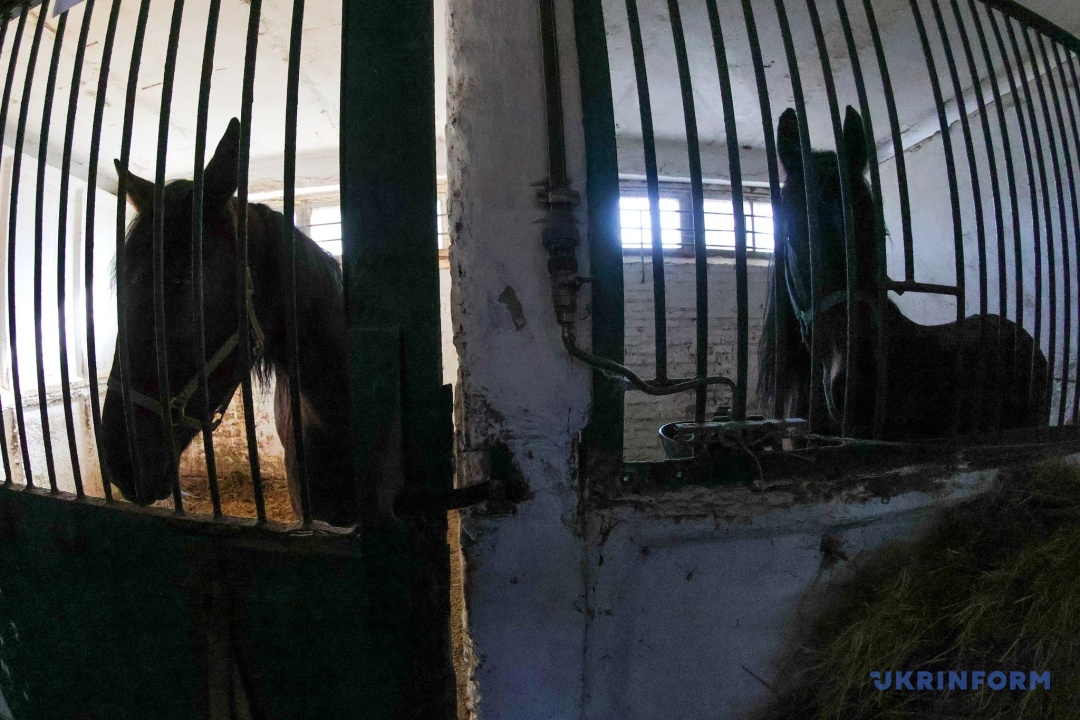
Then I received help from abroad at my request. It was pellets from a Swedish company that German equestrians helped me buy. That racetrack in Sweden is for trotting horses, and the Swedes sent the aid as if it were for trotting horses. They sent it by truck. We distributed the first truck among everyone. We also had hobby horses, thoroughbreds, elderly horses, and police horses. And all of them received expensive kraft feed in the first month, which is fed in the best stables in the world. Most of our horses would never have eaten such feed in their lives...
How did the horses get this feed? You can tell when a horse is satisfied. It shines then, in the apples. After all, apples are not just a color, apples go when the horse is in good shape.
Until April 4, 2022, every day was like the last. We could hear the shelling... The Roda breeding company in Makariv district had it even worse. There were 70 horses and two people who did not know whether they would survive the occupation. The farm was right in the crossfire. And many foals died because they were just born. And when they started shooting, the mothers jumped on the babies in a panic.
And we, in addition to looking for food, were looking for sawdust, because horses cannot stand on bare concrete. Meanwhile, the Europeans decided to help us again - they sold a lot at an auction, a mating with the stallion Maharaja, to help the Kyiv hippodrome. The mating right was sold for 120,000 crowns, and it was a price higher than the market price... It was bought by a famous athlete from Sweden... We kept the money, it's on the account of the racetrack, because not only the horses but also the company needs to survive…
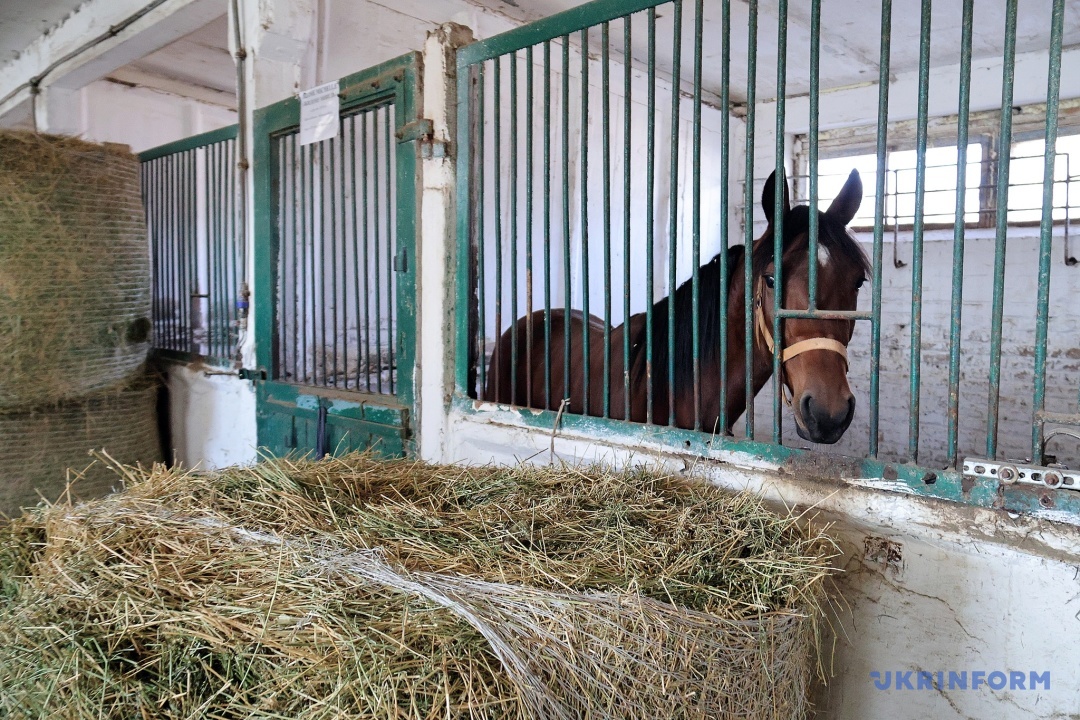
I think that the life of the Kyiv hippodrome during the Great War is much cooler than movie plots in terms of tension, tearfulness of the plots, and the collapse of difficulties and problems. Yes, there was no detective involved in the murder of a horseman, as in the movie Hippodrome, but our hippodrome was walking on the edge, one step away from complete bankruptcy. And we don't know what the director of the Yanukovych-era prisons would have done in such a situation if it hadn't been for the Revolution of Dignity. There are no horses here, no Secretariat class, which at a kind of horse IPO (its owner at the peak of her form managed to sell shares from future foaling) was valued at $6.8 million, but the foaling of the world's best stallion was still bought for a deliberately inflated price to help Ukrainian horses survive. And what other hippodrome has survived so many revolutions, changes in ownership, and this Great War... And yet, still having victories - in Olha Bondar's office, there are over a hundred cups on the shelves.
Sometimes trotters who are no longer in the top are brought here from France, and they will have an interesting and eventful life at the Kyiv racetrack.
Olha was just standing in the stall of such a "Frenchman" - Dragon D'Avril, whom she rides now.
- "This horse is a professor," says Olha, "he knows everything, you just need to learn to trust him. D'Avril has been the best trotting horse in Ukraine for four seasons.
- Do you speak French with him?
- I know French because I used to do an internship at French stables for experience, and they don't really want to speak English. But horses understand the intonation better that way.
I approach Dragon, stroke his shiny side, and he looks at me with a languid French look, there is something magnetic about horses.
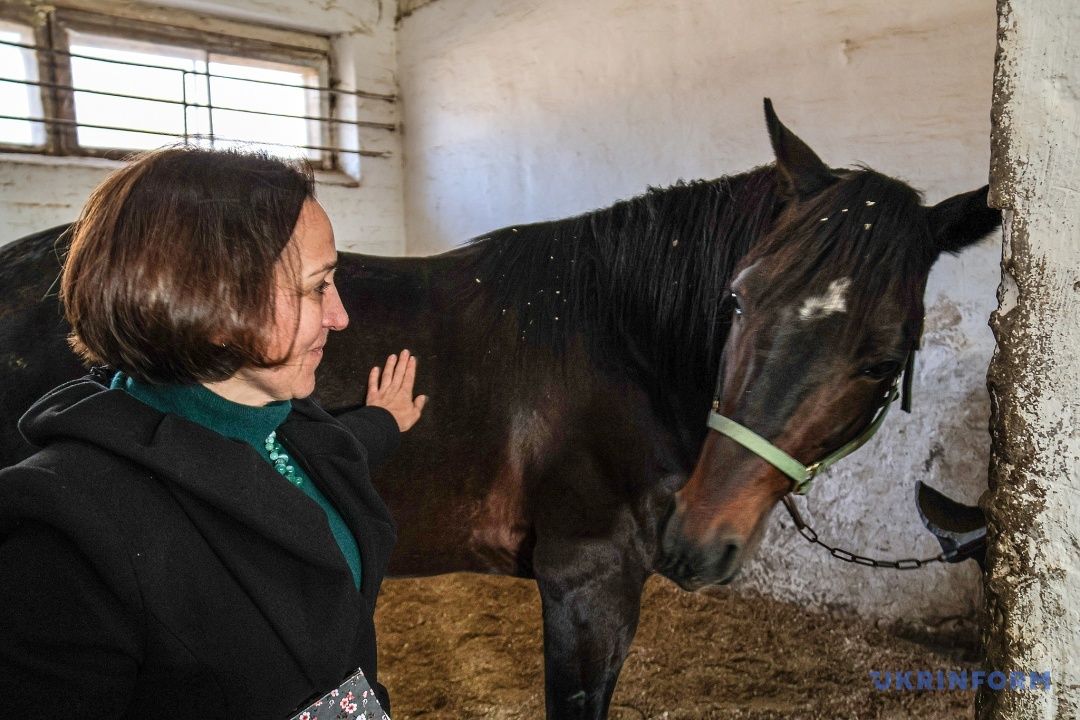
Finally, the guy who owns the horse mentioned above comes up to me and asks me to sign a petition to the Kyiv City State Administration to restore the sweepstakes.
- The parimutuel betting is a serious support for the hippodrome business. "Our system is broken, because there are no prize money for horses," says Olha, "Our owners only spend money. There is no mechanism to return at least part of the money. At least for the sake of some interest, so that the horses pay off. Horses run, become champions, and it's all for applause, for joy, so to speak. It has no financial impact. The sweepstakes has to develop and work. The more horses there are, the more interesting the races are. The sweepstakes raises interest, raises the desire to follow. And when the sweepstakes turnover is significant for the purpose of bonuses, we will be able to talk about paying prize money to the horses that take the prize places. This is how it works all over the world.
- Do we have a tradition of playing the sweepstakes?
- Of course, it is kept alive by fifty old men who throw in a UAH 100 somewhere in a "corner". They remember how it used to be in the old days.
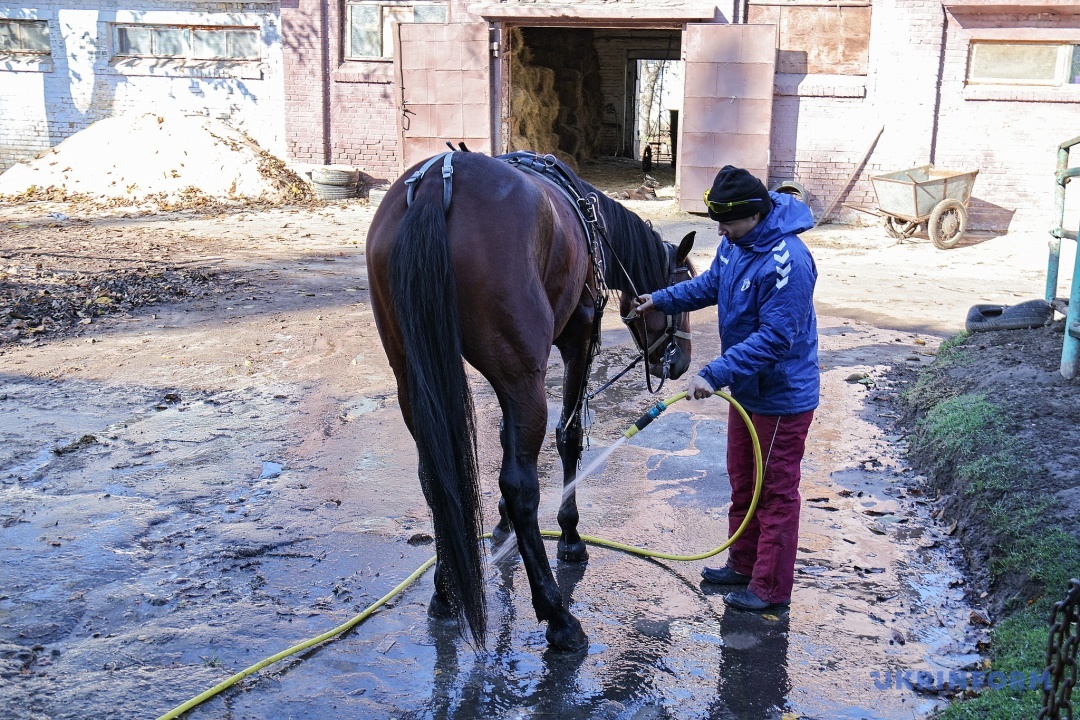
The stable really has a calming effect. I just want to watch how the horses are handled, washed, combed...
- "Do you like it?" Olha catches my eye, "come, we have workshops where you can learn how to take care of a horse for a donation. What we experienced raised interest in us. Volunteers have joined us. Some come to help with the horses, and some help to popularize horses and racing. We created an Instagram page. It's hard to believe, but we were even able to help a horse farm near Myrhorod. There is a war, no one buys horses now. The horses there are raised to the age of two, and they have no sporting future. So I asked for help on Facebook, and new owners started buying horses and putting them at our hippodrome. Ten horses arrived last year, six this year. But this is a wave, the system needs resources to grow, and young professional horsemen leave to work for Nova Poshta or Epicenter because of low salaries.
- What was the best day of your racetrack life?
- Last year, we did not know whether we would be alive or open if we survived. And then Kyiv region was liberated. We started training horses. And we posted an announcement on Facebook that there would be races. On June 19, 2022, for the first time in many, many years, all the stands were full. Many people wanted horses and racing to survive, were happy about it, and came to support us.
Lana Samokhvalova, Kyiv

